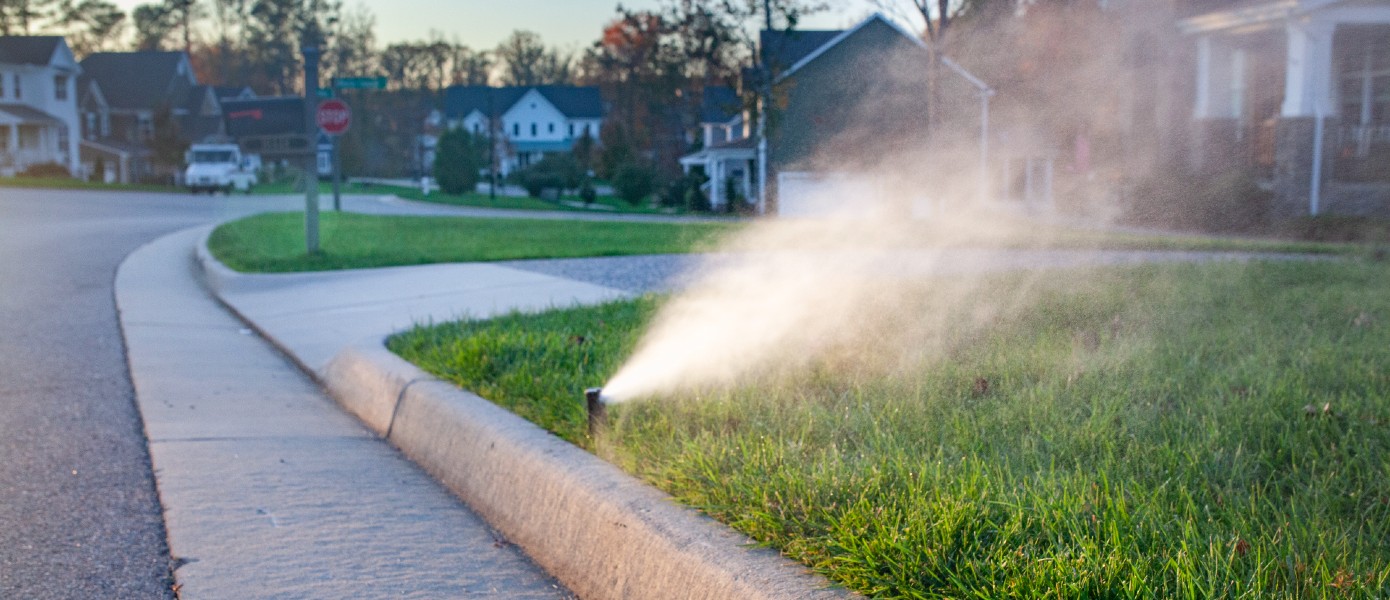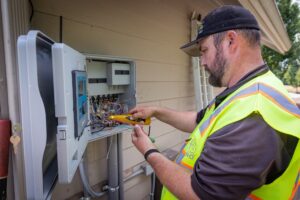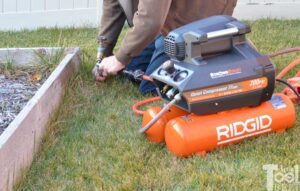Irrigation Winterization in Vancouver, WA
As the colder months approach, one of the most important tasks for homeowners and landscapers in Vancouver, WA, is irrigation winterization.
Irrigation

Need Assistance with Your Irrigation, Get Started Here
As the colder months approach, one of the most important tasks for homeowners and landscapers in Vancouver, WA, is irrigation winterization. While it may seem like a simple chore, ensuring that your irrigation system is properly winterized can save you from costly repairs and damage. With the fluctuating temperatures typical of the Pacific Northwest, freezing can wreak havoc on your irrigation pipes and components. In this blog, we’ll dive into the step-by-step process of irrigation winterization and why it’s crucial to trust this task to an irrigation professional.
Why Irrigation Winterization is Crucial
Before the first frost hits, it’s important to act swiftly to protect your irrigation system. If your system is left exposed to freezing temperatures, water can freeze inside the pipes, causing them to crack or burst. Additionally, sprinkler heads and valves can become damaged or even break under the pressure of ice buildup. Irrigation winterization helps avoid these issues by clearing the water from the system, preventing freeze damage, and ensuring that your irrigation will be up and running smoothly come spring.
Whether you’re maintaining a large yard in Vancouver, WA, or managing multiple properties in Portland, OR, or Bend, OR, the right irrigation winterization steps are vital for a long-lasting, efficient irrigation system.
The Stages of Irrigation Winterization
- Shut Off the Water Supply
The first step in irrigation winterization is to turn off the water supply to the system. This is typically done at the main valve. It’s crucial to ensure that all water flow is cut off before proceeding to the next steps. If you’re unsure where the main valve is, your landscapers in Vancouver, WA, or Portland, OR, can guide you. - Drain the System
Once the water supply is shut off, the next step is to drain the system of any residual water. For most irrigation systems, this can be done using manual drains or automatic drain valves. However, in some cases, especially with larger systems, air may need to be blown through the pipes using an air compressor. This process, known as “blowout,” is critical because any remaining water in the pipes can freeze and cause damage. - Remove and Store Sprinkler Heads
After draining, take the time to remove any sprinkler heads and inspect them for damage. This is also a good opportunity to clean them so they’re ready for the next season. If you’re not familiar with sprinkler head maintenance, professional landscapers in Vancouver, WA, and Bend, OR, can help you with this task. - Protect Valves and Backflow Preventers
Valves and backflow preventers are often located above ground and are vulnerable to freezing. Make sure to insulate these components using foam covers or specialized insulation materials. Not only will this protect them from the cold, but it will also extend the life of your system. - Final Inspection
The last step of irrigation winterization is to conduct a final inspection. Ensure that all valves are turned off, no water is left in the system, and all components are properly insulated. This check helps identify any potential issues before they become costly problems come spring.
The Risks of Skipping Irrigation Winterization
Irrigation winterization may seem like an optional task, but the risks of skipping it can be severe. If you leave your irrigation system exposed to the elements, you may find yourself facing burst pipes, broken sprinkler heads, or worse—total system failure. These issues not only result in expensive repairs but also disrupt your landscaping efforts, causing a delay in watering when the weather warms up. Moreover, damaged systems can lead to wasted water, increasing your utility bills.
For homeowners in Vancouver, WA, Portland, OR, and Bend, OR, relying on an irrigation professional ensures the job is done correctly. While DIY irrigation winterization may seem like a cost-saving option, improper winterization can end up costing you far more in the long run. A trained professional knows exactly what steps to take to prevent freezing and ensure the longevity of your system.

Why Hire a Professional?
While it’s tempting to tackle the winterization process yourself, it’s always best to call in an expert, especially if you have a complex irrigation setup. Irrigation professionals have the right equipment and experience to handle the blowout process and ensure that every part of your system is properly maintained. For example, landscapers in Portland, OR, and Bend, OR, understand the regional climate and can ensure your system is winterized based on the unique weather patterns in these areas. Additionally, they can spot early signs of wear and tear that could cause issues in the future.
In summary, irrigation winterization is an essential process for protecting your system and avoiding costly repairs. Trusting this task to an expert not only saves time and effort but ensures that your landscaping investment is protected year-round. Whether you’re in Vancouver, WA, Portland, OR, or Bend, OR, don’t wait for the first freeze—schedule your irrigation winterization today!

